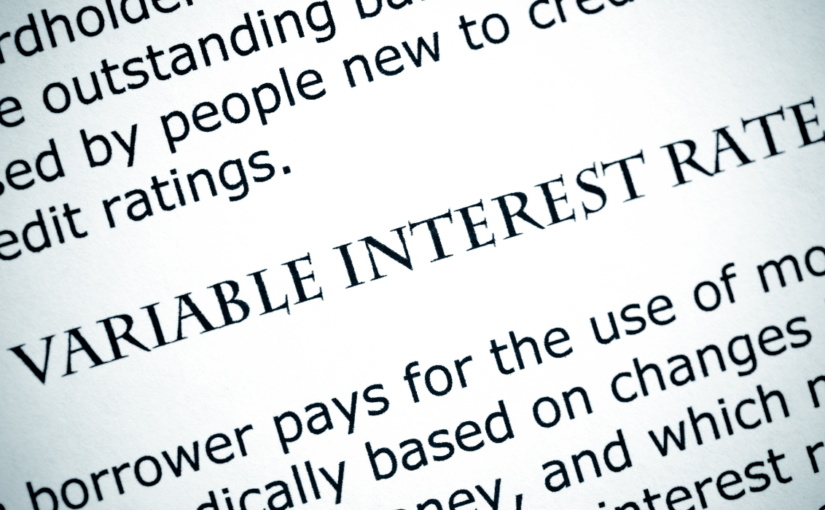back
Fixed and Variable Rate Loans for Retail Properties and Shopping Centers
02-2023

For property owners and investors, retail properties and shopping centers are crucial investments. One of the most crucial factors, as with any investment, is financing. Fixed-rate loans and variable-rate loans are the two loan types most frequently used to finance retail buildings and shopping malls. Every loan type has benefits and drawbacks of its own. The benefits and drawbacks of fixed and variable rate loans for retail properties and shopping centers will be covered in this article.
Fixed Rate Loans
An interest rate that stays the same for the duration of a loan is known as a fixed rate loan. Until the loan is repaid, the interest rate is fixed at the time the loan is first made. Using a fixed rate loan to finance a retail property or shopping center has both benefits and drawbacks.
- Advantages
One of the main benefits of a fixed rate loan is that the borrower will always be aware of the amount of their monthly payments. As a result, the borrower can more easily predict their monthly expenses and create a budget and long-term plan.
A fixed rate loan also has the benefit of offering security and stability. The borrower won’t have to be concerned about their interest rate rising, which might result in higher monthly payments, with a fixed rate loan. This facilitates the borrower’s ability to make long-term plans and wise decisions regarding their real estate.
Finally, compared to variable rate loans, fixed rate loans are typically simpler to comprehend and more transparent. A fixed rate loan typically has clearer terms and conditions, which can make it simpler for the borrower to make decisions about their financing.
- Disadvantages
The interest rate on a fixed rate loan is typically higher than the initial rate on a variable rate loan, which is one of its main drawbacks. This is due to the lender taking on the risk of future interest rate increases. The borrower will end up paying more interest over the course of the loan than they would have with a variable rate loan if interest rates do not increase.
A fixed rate loan may be more challenging to refinance if interest rates decline in the future, which is another drawback. Borrowers may not be able to refinance their loans to take advantage of lower rates if they have fixed-rate loans with high interest rates.
Variable Rate Loans
An interest rate on a loan with a variable rate is one that may change over the course of the loan. The interest rate can change up or down depending on the state of the market and is typically correlated to an index, such as the prime rate or LIBOR. Using a variable rate loan to finance a retail property or shopping center has both benefits and drawbacks.
- Advantages
The initial interest rate on a variable rate loan is typically lower than the initial interest rate on a fixed rate loan, which is one of its main benefits. This may lead to lower monthly payments and make it simpler for the borrower to meet loan eligibility requirements.
Another benefit of a variable rate loan is that the borrower’s monthly payments will go down if interest rates go down. As a result, over the course of the loan, significant savings may be realized.
Finally, if interest rates decline in the future, variable rate loans are frequently simpler to refinance. The borrower may be able to refinance their loan to benefit from the lower rates if they have a variable rate loan and interest rates decline.
- Disadvantages
A variable rate loan’s main drawback is that if interest rates rise, the borrower’s monthly payments may also rise. Planning and budgeting for the future may become more challenging as a result.
The risk of rising interest rates is another drawback of a variable rate loan for the borrower. If interest rates significantly increase, the borrower might not be able to afford the monthly payments. This can be particularly troublesome for retail establishments and shopping malls that depend on steady and predictable revenue.
In the end, the borrower’s particular financial situation and risk tolerance will determine whether they choose a fixed rate loan or a variable rate loan. Before making a choice, borrowers should carefully weigh their options and speak with a reputable financial advisor. Borrowers can choose a loan type that will help them reach their long-term financial objectives by carefully weighing the benefits and drawbacks of each one.
F2H Capital Group is a debt advisory firm specializing in negotiating the best terms for your commercial real estate projects. The company offers a range of financial products and services, including fixed loans, bridge loans, and construction loans across all asset types. Please contact us for any of your financing needs.

